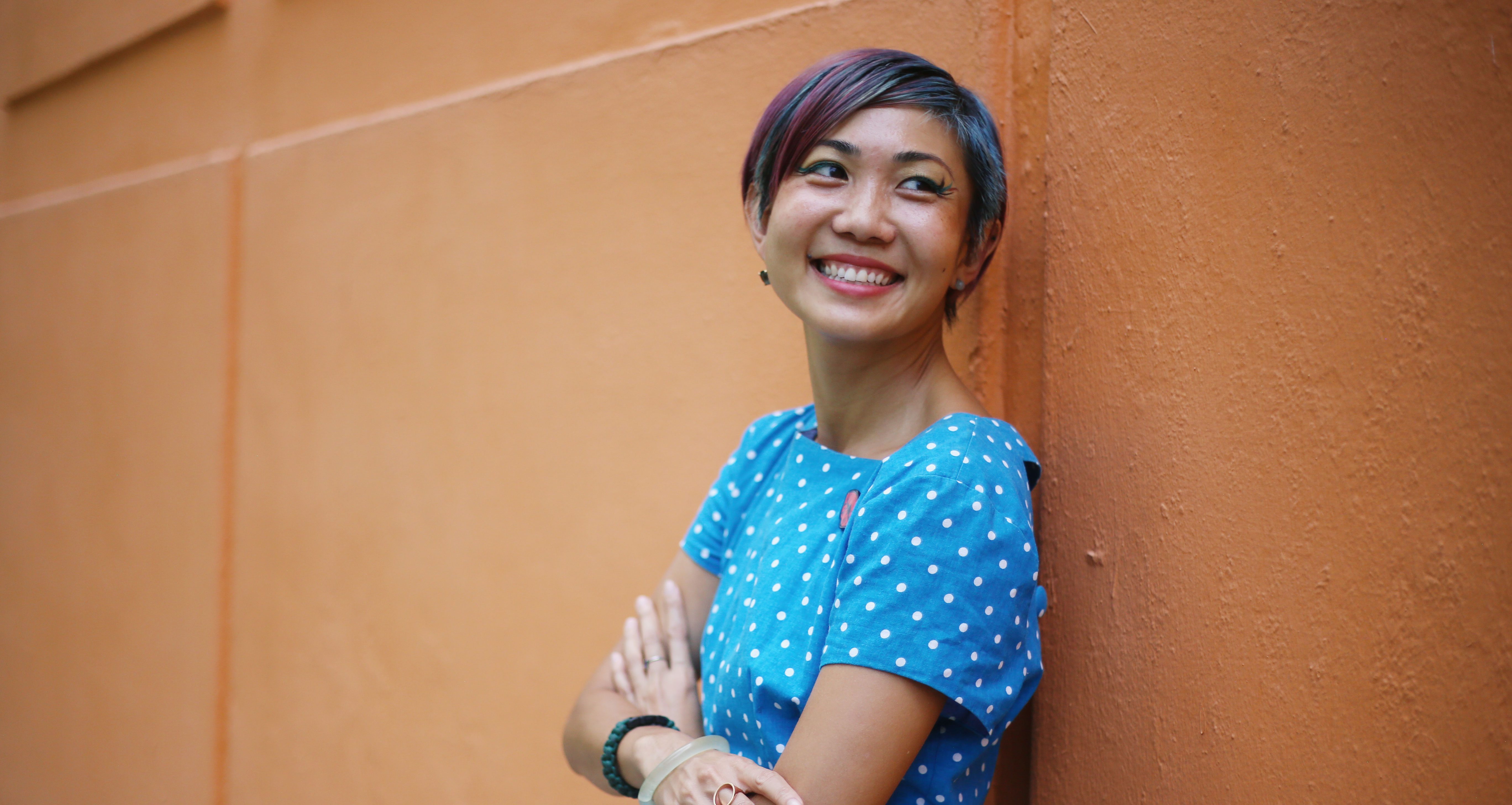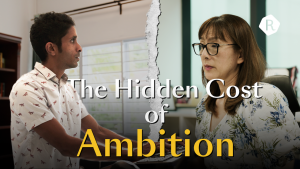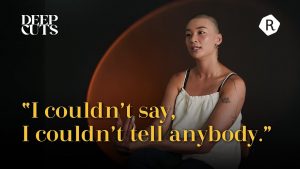“Since this virus outbreak, I have been so busy,” Janice tells me as we sit down for a chat in her home. Finding the time for the interview amid this pandemic was not easy—she has been getting plenty of new clients looking for new ways to fill their days.
Before we entered her apartment, I noticed a basket of sex toys sitting on a table next her front door. “This is my catalogue and these are my show products,” she told me. Janice Lee is the brand representative for sex toy company VēDO, handling all of Southeast Asia.
One look at her colourful hair and quirky outfits and you may think she completely fits the part of the emancipated woman working in sexual wellness. But you’d be wrong. According to Janice, the industry is actually led by ex-bankers, ex-IT men, and ex-PR professionals. Most of them stay discreet, having ventured into the sexual wellness industry because it is becoming increasingly lucrative in Asia. Which makes her quite the unicorn in her field.
“Tell me if you find any other sexual retailers who are willing to speak to you like I am,” Janice says, referring to their tendency to stay tight-lipped about their professions.
“They’re doing very well, but it’s run like a business for them. I represent one brand, because it’s the one that fits my value set.”
Janice tells me that she doesn’t work for the money because sales are not very consistent, given Singapore is still a growing market in the sexual wellness field. Instead, she does it because she’s invested in raising awareness about the industry’s values: “If you don’t take care of your own body, who else is going to take care of it?”
If all she wanted was money, she could have stayed in the HR career she was doing well in just a few years ago. Though that said, sexual wellness is expected to become very profitable soon, especially in Asia. Europe and the Americas currently hold the largest chunk of the market, but Asia Pacifc is the fastest growing.
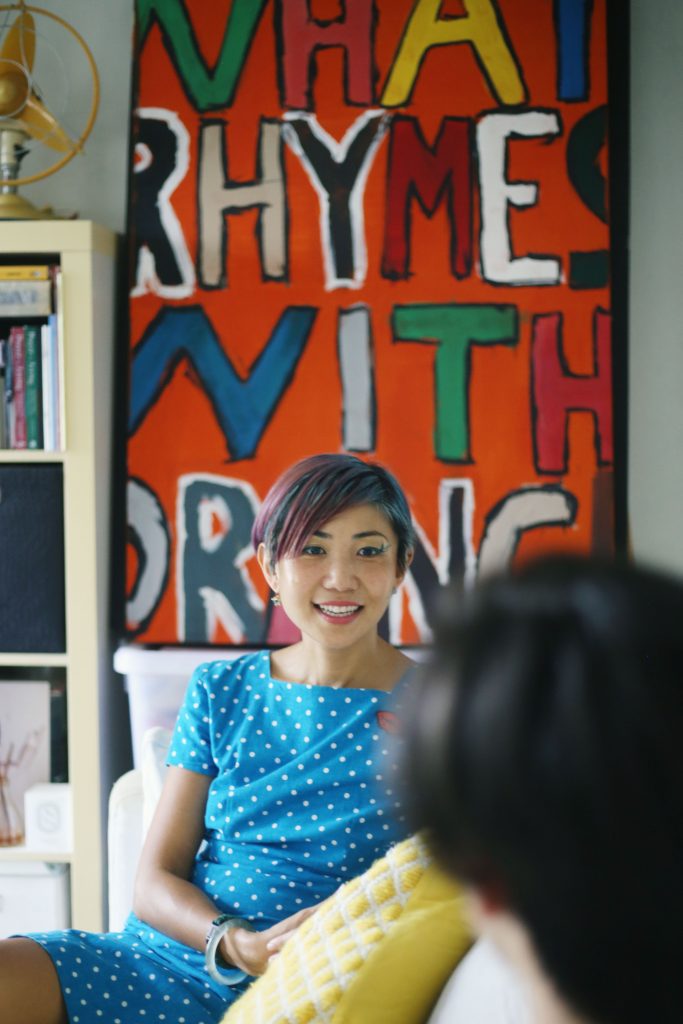
As a young adult, Janice set out to chase a more traditional career path. She graduated from NUS with a degree in Arts and Social Sciences, before going on to work in HR, specialising in business partnerships and talent management in a variety of industries ranging from manufacturing to real estate. But things changed 5 years ago when Janice started losing her hair. Initially, it was just a bit more than usual, until the patches grew noticeable.
She was diagnosed with alopecia—an autoimmune disorder that causes hair loss and baldness.
“I lost hair on my head. I had to shave and I was depressed for quite a few months. So I was given a sabbatical from my company to recover,” Janice shares.
And while various treatments ranging from steroids to homeopathy helped relieve the symptoms, the underlying trigger of the condition was stress. So she travelled to Bali, and then moved to the suburbs of Massachusetts, USA, where she would relearn what life meant for her.
“I discovered a different way of living. I saw people around me growing fruits and vegetables, and I saw them spend a lot of time visiting one another’s homes, getting to know each other, cooking, and making sure their friends and family were taken care of,” she said.
On learning to grow her own greens, Janice adds that “there was this joy and sense of fulfillment when you see your baby coming to life. I had never experienced that living in Singapore, especially coming from a corporate lifestyle.”
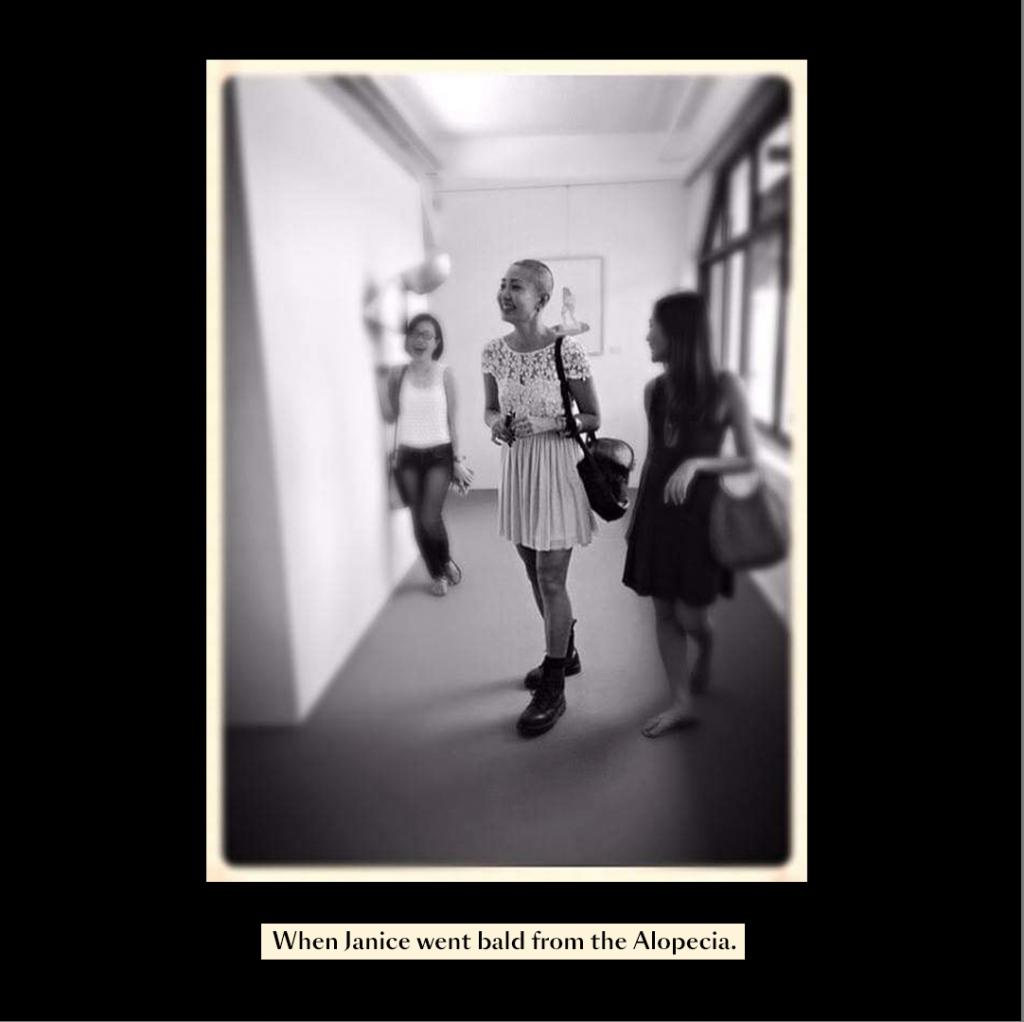
“It’s because I met incredible people who taught me to destress, and that there is a different purpose in life than just making money. They didn’t work all day and they made sure to have enough time for friends and families.”
After her 6 months sabbatical, she returned to Singapore and her job. She was ready to get back to her life, until she was slapped with another painful diagnosis: endometriosis, a condition that causes extremely painful menstrual cramps.
“It felt like I couldn’t move,” Janice described.
That was the final nail in the coffin of her corporate career, and she decided she would save up for a year to quit her job and move somewhere new. It was time to take care of herself first, Janice realised.
“I discovered self care and self love, and I made it high in my priority list.”
The year went by, and Janice set off to Mexico in search of a new life. She fell in love with the warm weather, rich culture, and beautiful scenery, and decided it was the place where she would base herself. She learned Spanish, travelled around South and Central America, and even worked as a translator.
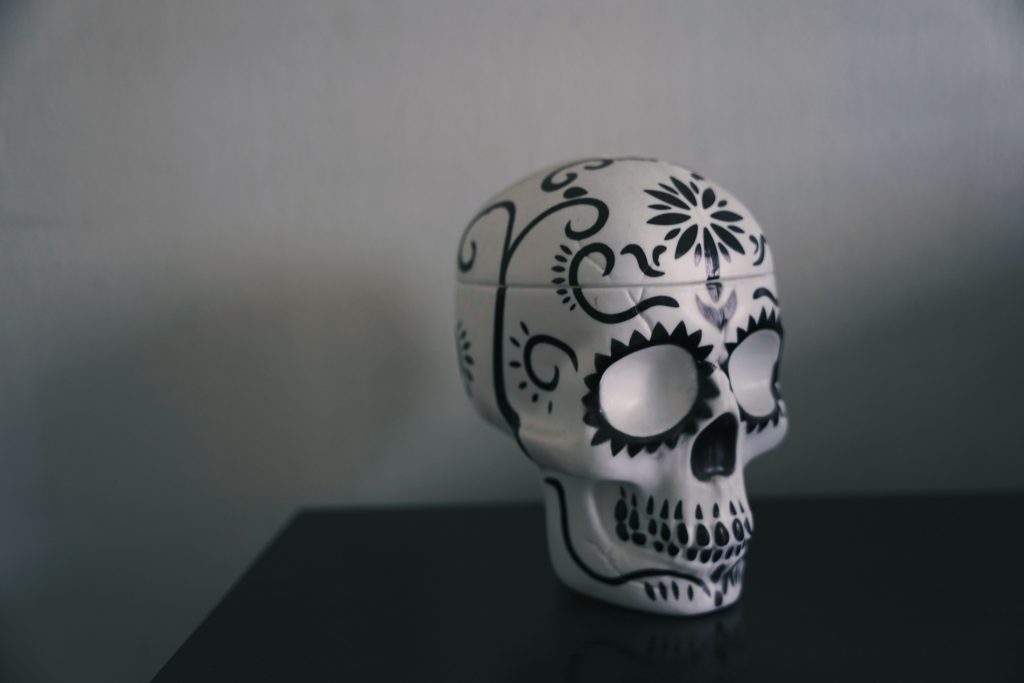
“There was no end date to my travels, it was very organic and I was basically challenging myself to try different ways of living. I learned to trust myself, trust others and take care of myself,” Janice said.
In December 2017, she returned to Singapore. She had family members facing medical complications, and setting up a business in Romania (as an expat) turned out to be more complicated than she thought. In only a matter of days after returning, she was unexpectedly diving back into the sexual wellness industry.
She met her current client at a friend’s christmas party.
“He is a manufacturer of sex toys in Hong Kong, and he happened to be in Singapore at the time,” Janice explains. “He was telling me how he was asked by Watsons to sell sex toys in their stores. I told him that was great, and that if he ever needed help, to call me. Three days later, he went back to Hong Kong and he gave me a call.”
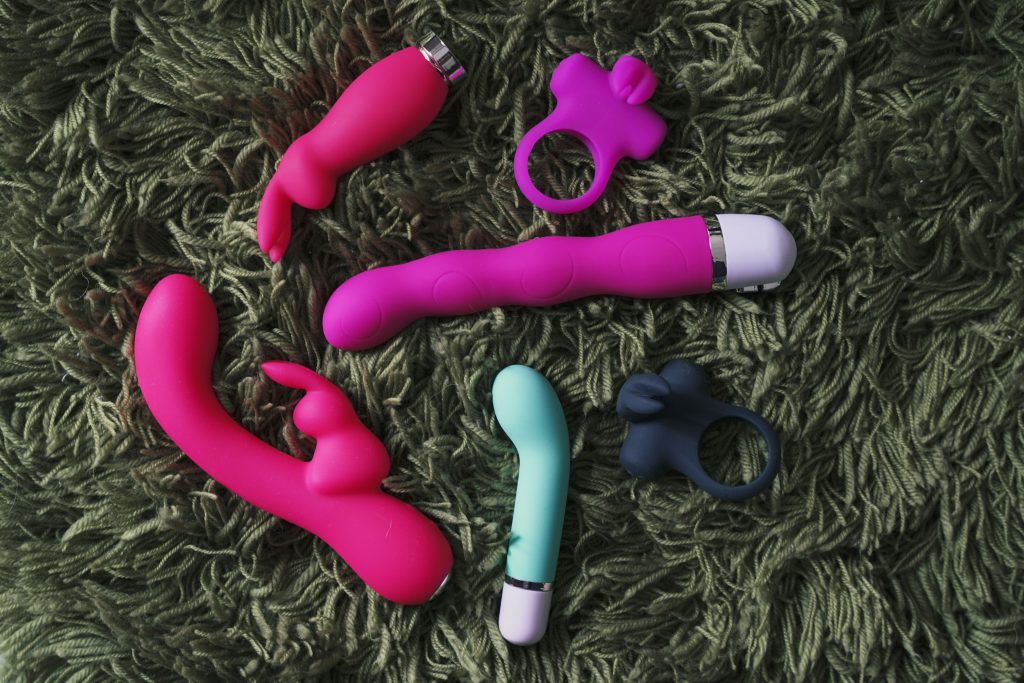
So she got sent over 40 of their toys, and she quite literally got to work.
“Eventually I asked other people for help in trying them,” she admits, but one thing was certain: she liked the brand. She started as a store assistant selling VēDO toys at Watsons.
“What was it like selling sex toys next to the other Watsons aunties?” I ask.
“They were so nice and supportive,” Janice replies. “I tried to give them toys to take home but they refused because they were shy. But when I was away, they would always help me sell by giving my catalogue to clients they thought would be interested.”
Selling toys in a drug store may not sound glamorous to many, but it was exactly the fact that VēDO was sold through a mainstream channel that attracted Janice to the brand.
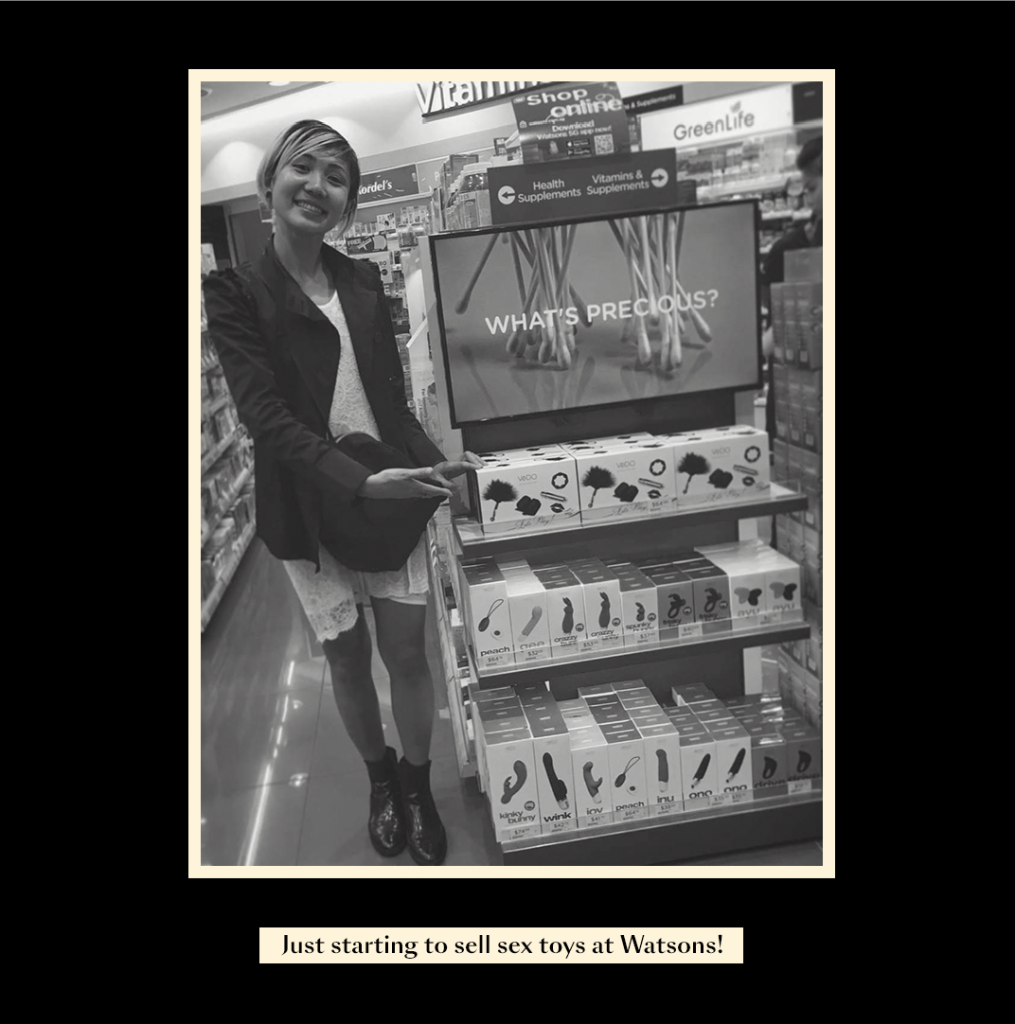
First, the brand made it to Watsons. Last year, it made it to Don Don Donki. Now, Janice is working on getting it on Amazon. Getting the toys out of sex shops and into regular spaces will encourage people to think of sexuality as a part of our everyday life.
Currently, going into a sex toy store can feel very grimey—especially in Singapore. Except for a few, most are plastered with neon signs and quasi-pornographic images, and there’s a sense of secrecy around the act of shopping in one. For many women, this is not inviting.
“I actually bought my last sex toy from Watsons, because I like how normal it feels there,” adds Marisse, my colleague and photographer at RICE who was also at the interview.
“I didn’t feel like I was doing something abnormal. There’s still a stigma that sex shops are only for freaks.”
This exchange reminds me of when I visited a friend in Oslo, Norway, a couple of years ago. We were walking down one of the main shopping streets, and there was a Zara, H&M, then a sex store—all lined up side by side. The best part was it barely looked like a sex store. It looked like any other gadget store, and it even had huge windows. Women were shopping casually, and the environment was extremely relaxed.
That was when I started to let go of certain stigmas I had about sex stores, because I had never seen one laid out so casually.
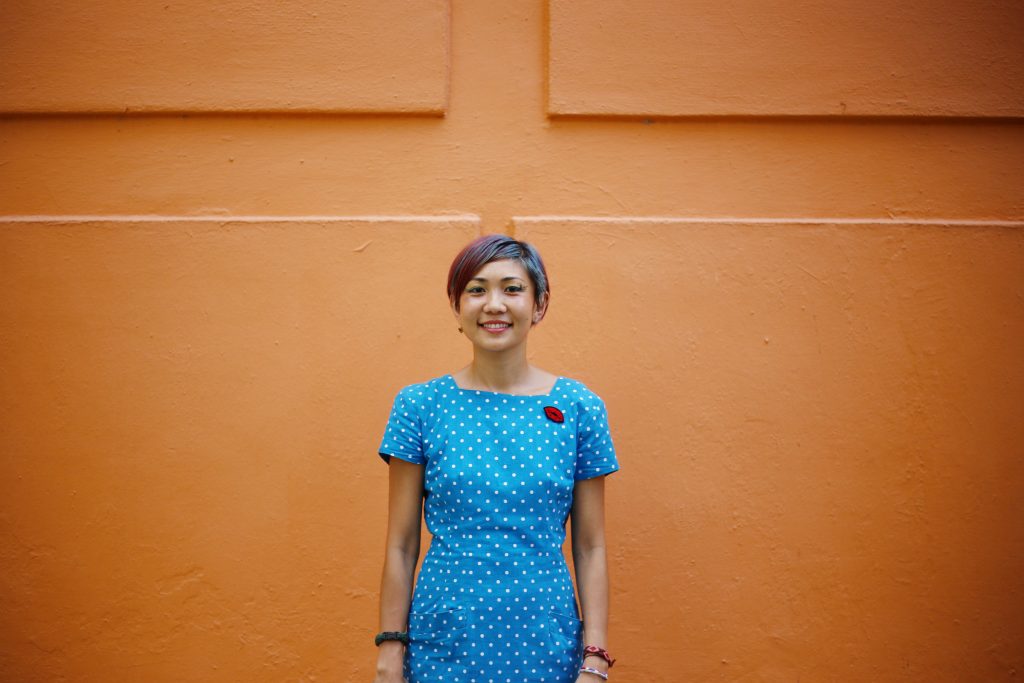
Local companies are also catching the wave. Maison Mika is an online store founded in Singapore by Trina Yeung, a Hong Kong born professional who was shocked by the stark difference in the way sex shops are presented in Asia versus the west. On their website, Maison Mika says it is “a brand established by Asian women for Asian women”, and helps those who “might be too shy and embarrassed to push the boundaries in the bedroom.”
Like VēDO and Smile Maker, Maison Mika’s website is soft to the eye, and presents itself with a level of class.
For sexual wellness to become mainstream, it has to be palatable for wider audiences of all age ranges. Janice admits that even after years working in the industry, she finds even Netflix’s Sex Education “a little too in your face”.
“Younger generations don’t mind, but you can’t assume that people above the age of 30 or 40 will watch that, it still takes some level of sexual education,” she explains. There are still many taboos and stigmas that need to be dismantled before people will understand what sexual wellness is about.
Janice tells me a story about a time a domestic helper asked her if she could try a sex toy, so she gave her one. The next time she saw her, she asked how it went: “I didn’t use it,” she told Janice. Apparently, her husband was very upset that she got a toy, and asked her: “Why did you buy this? Don’t you love me anymore? Don’t you want to have sex with me?”
He hid the toy from her, and she never got to try it.
This is an echo of one misconception Janice hears frequently: that people get sex toys to replace human contact. And more often than not, these come from men who fear being replaced by toys.
But toys are made to help us learn about ourselves when we are alone, and are a great tool to incorporate in the bedroom with partners too.
“We need to get to know our own bodies before letting another person in,” Janice said. “And with partners, it’s important to spice things up and try new things every once in a while. If a woman gets a toy, she isn’t saying she doesn’t want her partner anymore.”
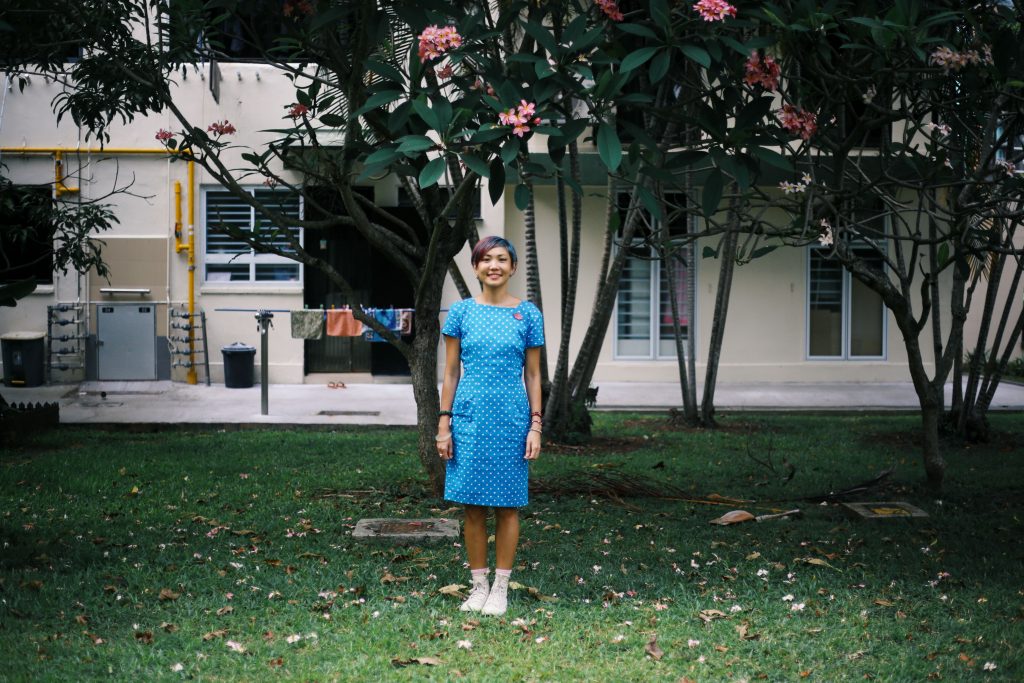
Certain family members strongly objected, and she was constantly met with ‘jokes’ from friends asking her when she would get a real job. But with time, everyone supported her.
“Recently, my youngest brother came to support me at a sexual comedy show at which I was speaking. Both my parents have told me they don’t understand why I do what I do, but that as long as I am happy they are fine with it.”
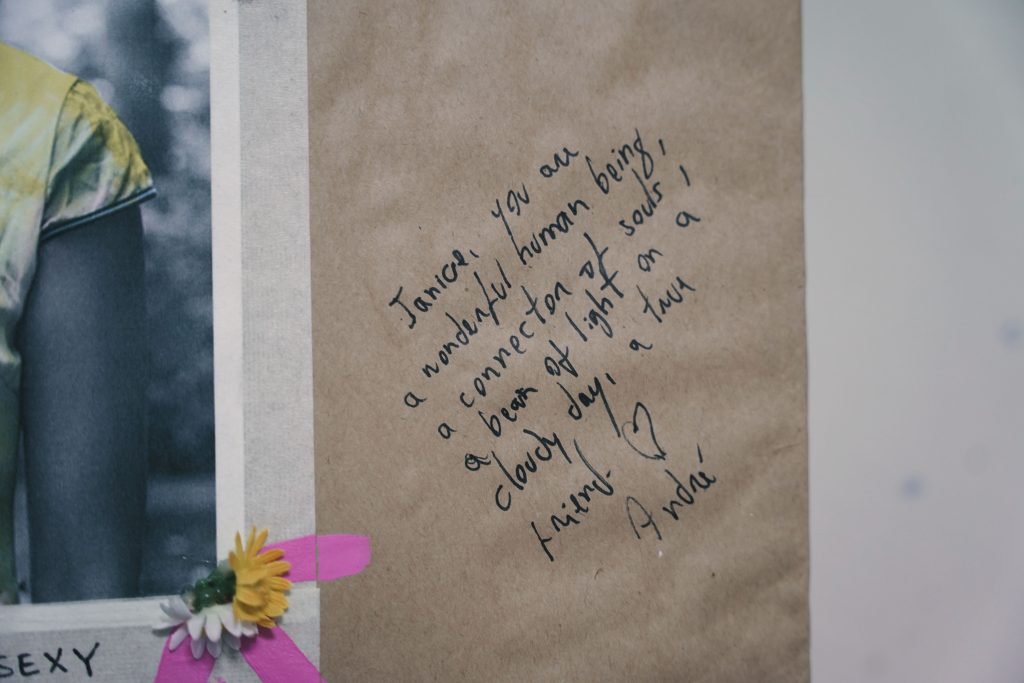
But there are still times when she wants to leave the industry, for various reasons including the unstable monetary income and societal objections she faces. Ultimately, however, “there is no one better to do this here but me,” she says. “After two years in this industry, I want to use my knowledge to keep pushing for more authentic and open dialogues on sexuality in Asia, especially Singapore.”
“Singapore is a very tight market to penetrate … Every pun intended.”
We both laugh. But with the right education and time, people will open up. If the aunties Janice worked with at Watsons could acclimatise to the idea of sexual wellness, Janica says anyone can.
“At the end of the day, it’s about living mindfully, authentically,and consciously. And anyone can learn that. Once, I was talking to a 70-year-old Grab uncle. When I told him what I did for a living, he said, ‘I have a lot of respect for you. It’s a very difficult thing to do in Singapore. But somebody’s gotta do it, and if it’s not now then when?’”
Find Janice on her sexual wellness Instagram here.

